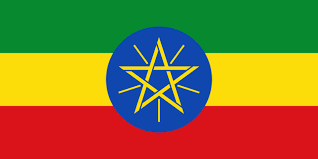Muslim students in Axum town, located in the Central Zone of the Tigray region, are protesting a hijab ban that they say has barred them from attending school and violated their constitutional rights to education and religious freedom.
A student, speaking anonymously, told Addis Standard that schools began denying entry to students wearing hijabs two weeks ago. “The schools are denying our right to education because we wear the hijab, which is required by our religion,” she said. “We even asked to wear hijabs matching the color of our uniforms, but they refused to allow that as well.”
Getu Kassay, a representative of the Islamic Affairs Office in the Central Zone, said his office has been working with the city’s Education Bureau to resolve the issue. He explained that the controversy began two months ago. After a letter was sent to the Education Bureau, students were initially allowed to attend classes. “However, two weeks ago, they were again prevented from entering the schools,” he said.
In a letter dated 10 October, 2024, the Islamic Affairs Office in Axum had previously urged schools to respect the religious rights of Muslim female students, emphasizing that wearing the hijab is a religious obligation. The letter also highlighted that the ban affects four secondary schools–Woree, Kindeya, Adebabay, and Messenado–and approximately 140 students, including grade 12 students who were reportedly denied registration for national exams.
Haji Mohammed Kahsay, Secretary of the Islamic Affairs Council in Tigray, criticized the ban, saying it has disproportionately affected grade 12 students. “Some students have been prevented from registering for the national exams because they were not allowed to enter the school premises,” he said. “The hijab is a deeply significant expression of faith and identity for Muslim women. Denying students the right to wear it violates their religious freedoms.”
He added that the policy contradicts Ethiopia’s constitution, which guarantees religious freedom, and accused school officials of politicizing the issue. “Educational institutions should provide a safe environment for all students, regardless of their religion,” he said. “Instead, these policies exclude students and violate their rights.”
Haji Mohammed urged all stakeholders to protect individual freedoms and prioritize inclusivity. “Building a harmonious society requires protecting personal freedoms and promoting mutual understanding,” he said.
The protests in Axum echo similar cases elsewhere in Ethiopia. In Addis Abeba, Muslim students were suspended from four secondary schools for wearing niqabs, with school authorities accused of “pressure and harassment.” These actions, condemned by the Addis Abeba Islamic Affairs Supreme Council as “irresponsible” and lacking legal justification, prompted public outcry and high-level discussions.
The Council eventually secured an agreement allowing students to return to their studies but warned that such restrictions harm students’ education and disrupt societal harmony.
Efforts by Addis Standard to contact officials from the regional and zonal education bureaus in Tigray for comment were unsuccessful.
;





